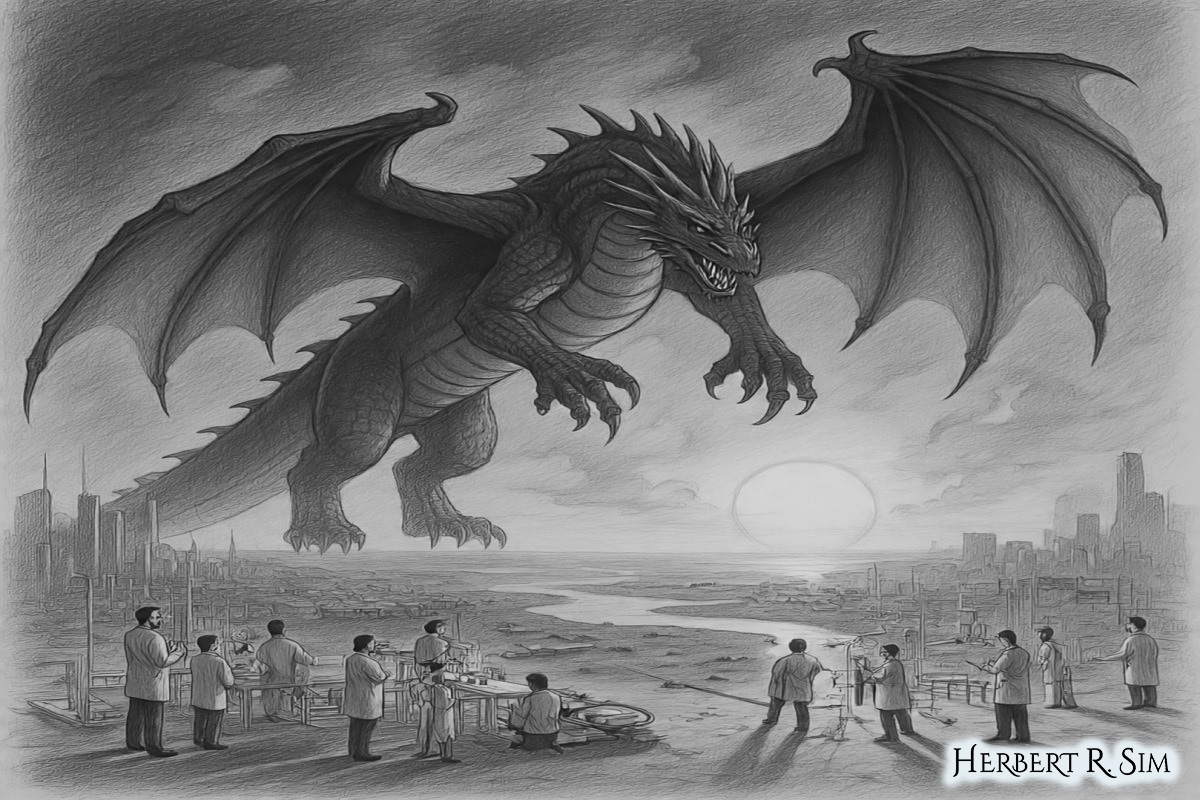
In The Fable of the Dragon-Tyrant, philosopher Nick Bostrom presents an allegory in which a colossal dragon demands a daily tribute of human lives. Over generations, societies come to accept this death toll as inevitable, even building elaborate systems to manage the process of sacrifice. Only after technological advancement do humans decide to challenge and ultimately slay the dragon. The dragon, of course, symbolizes death — particularly death from aging — and the fable is a call to confront it through science, medicine, and innovation (aka Transhumanism).
Far from being just a moral story, Bostrom’s work is a persuasive argument that passivity in the face of preventable suffering is ethically indefensible.
Accepting Death as “Natural” Is Dangerous Complacency
One of Bostrom’s main critiques is how easily humanity accepts death as an immutable fact of life. In the fable, generations rationalize their sacrifices by claiming that resisting the dragon is futile or unnatural. This mirrors real-world attitudes toward aging and death, where fatalism often replaces ambition. While certain biological limitations exist today, history shows that technological “impossibilities” — such as eradicating smallpox or flying across continents — have been overcome. If we view aging as an engineering problem rather than an untouchable law of nature, the moral imperative becomes clear: we should seek to cure it.
The Cost of Delay Is Measured in Lives
Bostrom’s narrative underscores the staggering human cost of inaction. Every day the dragon lives, countless people die. Translated into real-world terms, this means millions of deaths annually from age-related illnesses. Critics sometimes argue that death gives life meaning, but this overlooks the suffering of those who die prematurely or the grief of those they leave behind. Postponing the fight against death is not a neutral act — it is a choice that results in avoidable tragedy. As Bostrom implies, the moral arithmetic demands urgency.
Technological Progress Is a Moral Obligation
The fable positions technological advancement as the turning point. It is only when humans develop the means to challenge the dragon that the moral hypocrisy of tolerating it becomes undeniable. In our own world, medical research into longevity, regenerative medicine, and biotechnology is at a similar inflection point. To withhold funding, talent, or political will from these efforts is to tacitly endorse preventable mortality. Just as earlier generations funded public health infrastructure, our generation must invest in anti-aging science as a matter of justice.
Addressing Common Objections
Some worry that defeating death could lead to overpopulation, resource strain, or social stagnation. Bostrom anticipates these concerns, noting that societies can adapt to new challenges. Technological solutions to sustainability — from renewable energy to advanced agriculture — already show that innovation can expand our carrying capacity. Moreover, fears of boredom or loss of meaning underestimate the human capacity for reinvention and growth. A longer life does not necessitate a stagnant one.
Conclusion: The Dragon Still Lives
Bostrom’s Fable of the Dragon-Tyrant is not merely a story but a philosophical challenge. It invites us to reject fatalistic resignation and to treat the conquest of aging as one of the most urgent moral causes of our time. Just as the fable’s citizens eventually recognized their complicity in the dragon’s reign, we too must confront the fact that millions die each year from conditions that may one day be curable. The choice is ours: continue to appease the dragon, or commit fully to slaying it.
